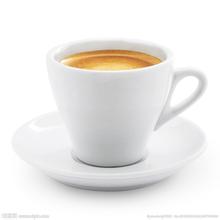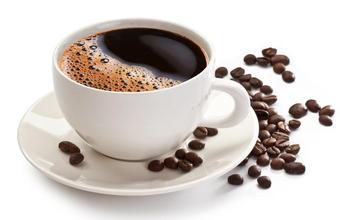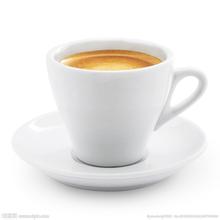Coffee beans taste the development of coffee beans
There are many kinds of coffee. The taste of each coffee is different. Blue Mountain Coffee is produced on the Caribbean island of Jamaica, which runs through many mountains. The slopes of these mountains are the main producing areas of Jamaican coffee. The Blue Mountains, located in the northeast of the Jamaican capital, is just one of these mountain peaks. The mountain has such a good name because the British soldiers who had arrived in Jamaica saw the blue light shining over the mountain and shouted, "look, the blue mountain!" From then on, it was named "Blue Mountain". The island of Jamaica is surrounded by the Caribbean Sea. On every sunny day, the sun shines on the sea, and the distant mountains are shrouded in a faint blue atmosphere because of the refraction of the azure sea.
The unique flavor of Blue Mountain Coffee is related to its unique geographical location and climatic conditions. Blue Mountain is a coffee belt between 25 degrees north latitude and 25 degrees south latitude, with fertile new volcanic soil, fresh air, no pollution, rainy all the year round and great temperature difference between day and night. Most importantly, every afternoon, clouds cover the top of the mountain, which not only shades the coffee trees naturally, but also brings abundant water vapor, which makes the taste and aroma of Blue Mountain coffee outstanding.
80% of Yamai Canada is covered by mountains, which are steep and towering, with coffee trees almost entirely on rugged slopes. Therefore, the process of picking coffee beans during the harvest period is very difficult, and non-local skilled female workers are simply not competent. When picking, we should choose the right mature coffee beans, immature or ripe coffee beans will affect the quality of coffee. The picked coffee beans are shelled on the same day, and then let them ferment for 18 hours. After that, the coffee beans were cleaned and screened. The subsequent process is to dry, which must be carried out on the cement floor or on a thick blanket until the humidity of the coffee beans drops to 12% 14%. And then store it in a special warehouse. Take it out and roast when needed, then grind it into powder. These procedures must be strictly mastered, otherwise, the quality of coffee will be affected.
For the very precious Blue Mountain Coffee, the packing and transportation mode adopted by the Jamaican government is also different. Unlike other coffees, Blue Mountain Coffee is not packed and transported in cloth bags at 60kg / bag, but in wooden barrels at the standard of 70kg / barrel. What is even more special is that each barrel is accompanied by a certificate issued and sealed by the Jamaican government to prove its pure pedigree, which is unique in the whole coffee industry.
Not all coffee produced in the Blue Mountains of Jamaica is labeled as "Blue Mountain Coffee". There are two grades of coffee here: "Alpine Coffee" and "Blue Mountain Coffee". Only those grown in the Blue Mountains above 609 meters above sea level are authorized to use the "Jamaican Blue Mountain caffeine" logo. Blue Mountain Coffee can maintain today's top status, but also closely related to the local business policy. In 1932, Jamaica adopted a policy to encourage coffee production to reduce the island's dependence on sugar exports. Unlike most coffee-producing countries, the local government does not plant a large number of high-quality and poor-quality coffee in order to increase output, but to give priority to quality, preferring to sacrifice the output of coffee to ensure the quality of Blue Mountain coffee. Therefore, Jamaica is currently one of the countries with low coffee production in the world. Brazil, the world's largest coffee exporter, produces 30 million bags of coffee a year, while Blue Mountain produces only about 40, 000 bags a year.
As Japan has always invested in the Jamaican coffee industry, most of the Blue Mountain Coffee is now owned by the Japanese, and they have also obtained the right of preemption of Blue Mountain Coffee. In 1992, Jamaica sold 688 tons of Blue Mountain coffee to Japan, 75 tons to the United States and 59 tons to Britain. Now, 90% of Blue Mountain coffee is bought by the Japanese. Now, since the rest of the world can only get 10% of Blue Mountain, regardless of the price, Blue Mountain coffee is always in short supply.
Some people have compared drinking Blue Mountain Coffee to driving a Rolls-Royce, which is an excellent enjoyment. The quality of Blue Mountain Coffee is the best. It has large particles, good quality, harmonious taste, strong mellow taste, uniform flavor, aroma, concentration, acidity and spiciness. It is recognized as the best coffee in the world. Pure Jamaican Blue Mountain Coffee perfectly combines the unique sour, bitter, sweet, mellow and other flavors in the coffee to form a strong and attractive elegance, which is unmatched by other coffee. People who love Blue Mountain Coffee say: it is a coffee beauty that combines all the advantages of good coffee.

Important Notice :
前街咖啡 FrontStreet Coffee has moved to new addredd:
FrontStreet Coffee Address: 315,Donghua East Road,GuangZhou
Tel:020 38364473
- Prev

Blue Mountain Coffee roasting style Blue Mountain Coffee flavour Blue Mountain Coffee
The secret of Blue Mountain Coffee the secret of why Blue Mountain Coffee tastes pure: their coffee trees are all on rugged hillsides, and the picking process is so difficult that non-local skilled female workers are simply unable to do it. It is very important to choose the right ripe coffee beans when picking. Immaturity or ripeness will affect the quality of the coffee. The picked coffee beans should be shelled on the same day, and then let them
- Next

Panamanian coffee type Panamanian coffee flavor
Panama is a small country located in the center of the American continent. The waters of the Atlantic and Pacific oceans flood its beaches. Panama is located at 9 degrees north latitude, the meeting point of the Central Mountains, where Mount Baru, one of the highest volcanoes in Central America, is located. Baru volcano has an altitude of more than 11400 feet, and the land around it is rich in nutritious and fertile soil, which is unique to Panama.
Related
- Does Rose Summer choose Blue, Green or Red? Detailed explanation of Rose Summer Coffee plots and Classification in Panamanian Jade Manor
- What is the difference between the origin, producing area, processing plant, cooperative and manor of coffee beans?
- How fine does the espresso powder fit? how to grind the espresso?
- Sca coffee roasting degree color card coffee roasting degree 8 roasting color values what do you mean?
- The practice of lattes: how to make lattes at home
- Introduction to Indonesian Fine Coffee beans-- Java Coffee producing area of Indonesian Arabica Coffee
- How much will the flavor of light and medium roasted rose summer be expressed? What baking level is rose summer suitable for?
- Introduction to the characteristics of washing, sun-drying or wet-planing coffee commonly used in Mantenin, Indonesia
- Price characteristics of Arabica Coffee Bean Starbucks introduction to Manning Coffee Bean Taste producing area Variety Manor
- What is the authentic Yega flavor? What are the flavor characteristics of the really excellent Yejasuffi coffee beans?

